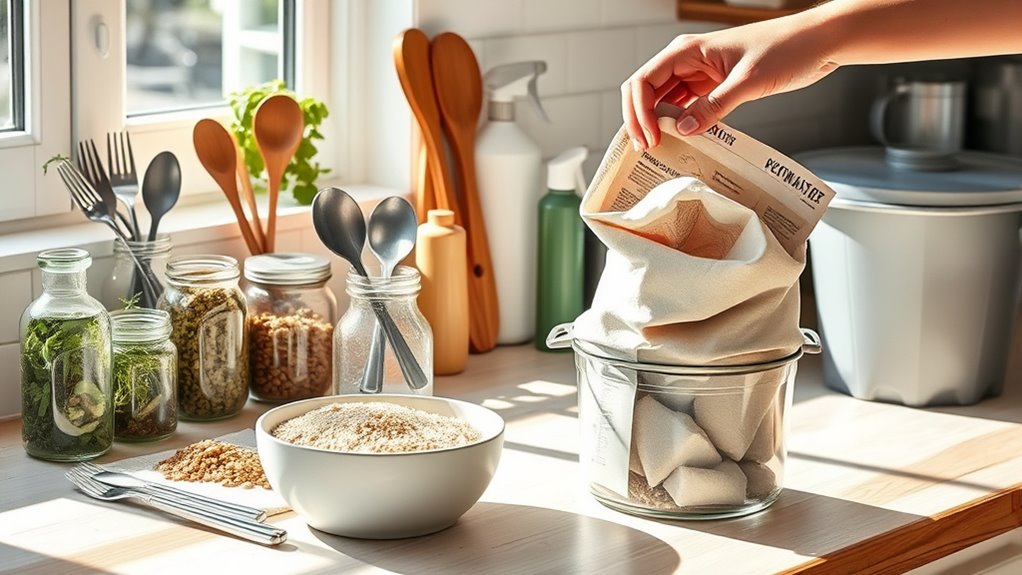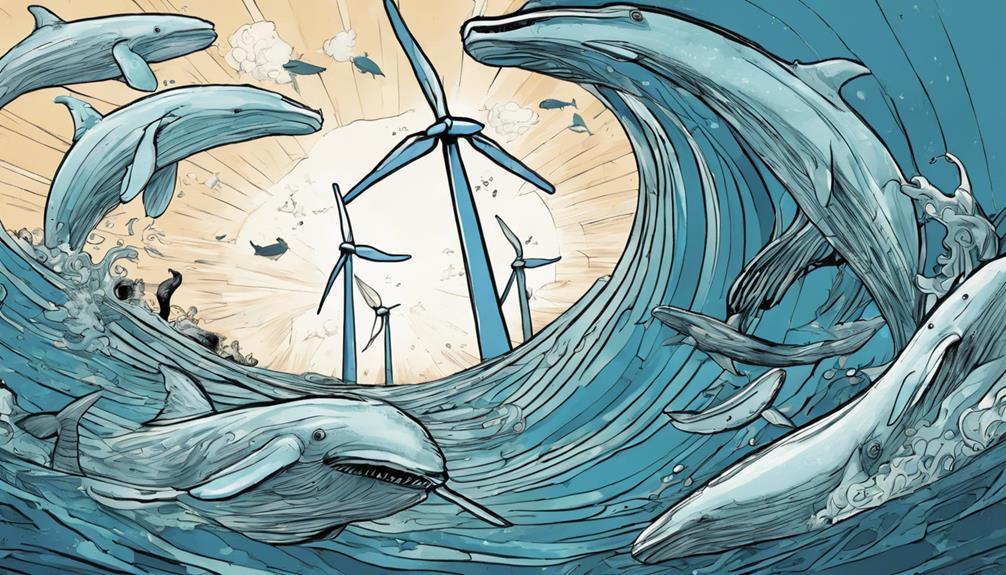To reduce your trash to nearly nothing, focus on adopting a zero-waste lifestyle by choosing products with eco-friendly packaging, buying in bulk, and using reusable containers. Support sustainable manufacturing and avoid single-use plastics. Engage in mindful shopping, reduce packaging waste, and incorporate waste-reducing habits into your daily routine. Building eco-conscious communication and cooperation can boost your efforts. Keep exploring ways to minimize waste—you’ll find plenty of practical strategies that make a real difference.
Key Takeaways
- Prioritize reusable containers and packaging to minimize reliance on single-use plastics.
- Buy in bulk to reduce packaging waste and lower overall trash.
- Practice mindful shopping by choosing eco-friendly, sustainable products.
- Incorporate waste-reducing routines into daily habits, like composting and recycling.
- Support eco-conscious brands and manufacturing practices to promote near-zero waste lifestyles.

Another effective way to minimize waste is by adopting sustainable shopping habits, which encourages you to choose products that have a lower environmental impact and support eco-friendly practices. Engaging in dynamic communication exercises for couples can also foster better understanding and cooperation in making eco-conscious choices together. Incorporating grocery savings strategies like buying in bulk and utilizing coupons can further reduce waste by decreasing packaging and overconsumption. For example, selecting reusable containers and packaging aligns with zero-waste principles and helps cut down on single-use plastics.
Frequently Asked Questions
How Can I Start a Zero-Waste Lifestyle on a Tight Budget?
Starting a zero-waste lifestyle on a tight budget is doable with budget-friendly swaps and DIY zero waste projects. You can replace single-use items with reusable alternatives like cloth bags and jars. Make your own cleaning products, use old clothes as cleaning rags, and repurpose containers. Focus on reducing waste gradually, and you’ll find that small, affordable changes make a big difference without breaking the bank.
What Are the Common Challenges Faced When Adopting Zero-Waste Habits?
Like steering through a maze, adopting zero-waste habits presents challenges. You might struggle with reducing single-use plastics and face recycling misconceptions, thinking everything gets reused. It’s hard to stay consistent and find affordable alternatives. Social pressures and convenience can tempt you back to old habits. But staying informed and committed helps you overcome these obstacles, gradually transforming your lifestyle and making a positive impact on the environment.
How Do I Handle Waste During Travel or Holidays?
When traveling or during holidays, you can handle waste by bringing reusable containers for snacks and drinks, which cut down on plastic waste. Carry portable utensils to avoid single-use disposables while dining out or picnicking. Plan ahead by researching eco-friendly options at your destination, and always remember to dispose of waste properly. This way, you stay eco-conscious without sacrificing convenience, making your trip more sustainable.
Can Zero-Waste Living Be Effective in Urban Environments?
Like Odysseus steering treacherous waters, you can steer your urban life toward zero waste. It’s effective because you can practice urban composting, turning food scraps into soil, and participate in community recycling programs. Small actions multiply, creating a ripple effect that benefits the environment. While city living has challenges, your commitment to reducing waste makes a meaningful impact and proves that zero-waste living is possible, even in bustling urban environments.
What Are the Best Resources or Communities for Zero-Waste Support?
You’re looking for the best resources or communities to support your zero-waste journey. Local recycling programs and composting tips are essential, so check out community groups or online forums focused on sustainable living. Join social media groups or apps dedicated to zero-waste tips, and attend local workshops. These resources connect you with like-minded people, helping you share strategies, troubleshoot challenges, and stay motivated toward reducing your trash considerably.
Conclusion
Adopting a zero-waste lifestyle can markedly reduce your trash—did you know the average person throws away about 4.9 pounds of waste daily? By making small changes like reusable bags and containers, you’re not only cutting down on landfill waste but also helping the planet. Every step counts, and over time, your efforts can add up to a cleaner, healthier world. Start today, and make a real difference—one piece of trash at a time.









